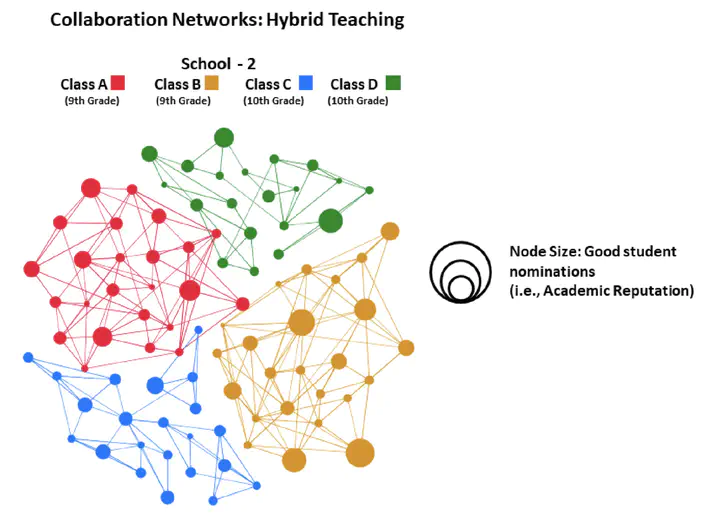Enhanced social connectivity in hybrid classrooms versus academic centrality in online settings
 Image credit: CRiSS-LAB
Image credit: CRiSS-LABAbstract
Social learning, the ability to perceive, interpret, and assess the behavior of one’s peers, is crucial for forming meaningful relationships and succeeding in various learning environments. Yet, the rise of online and hybrid settings poses new challenges to socialization. Here, we study the social interactions among 191 high school physics students in Chile, comparing online and hybrid classrooms that were assigned in the COVID-19 pandemic context. We found that students in hybrid settings were more connected and more likely to form casual relationships outside their immediate friend groups, which allowed them to gather new information from diverse sources. Along the same lines, in online classrooms, students who excelled in physics occupied more central positions in social networks. This trend was not evident in hybrid settings, suggesting that when social cues are limited, academic performance gains greater importance in establishing social hierarchies and potentially limiting access to diverse information. Our study highlights the importance of social interactions in educational contexts and raises questions about the impact of relational inaccessibility on virtual learning.